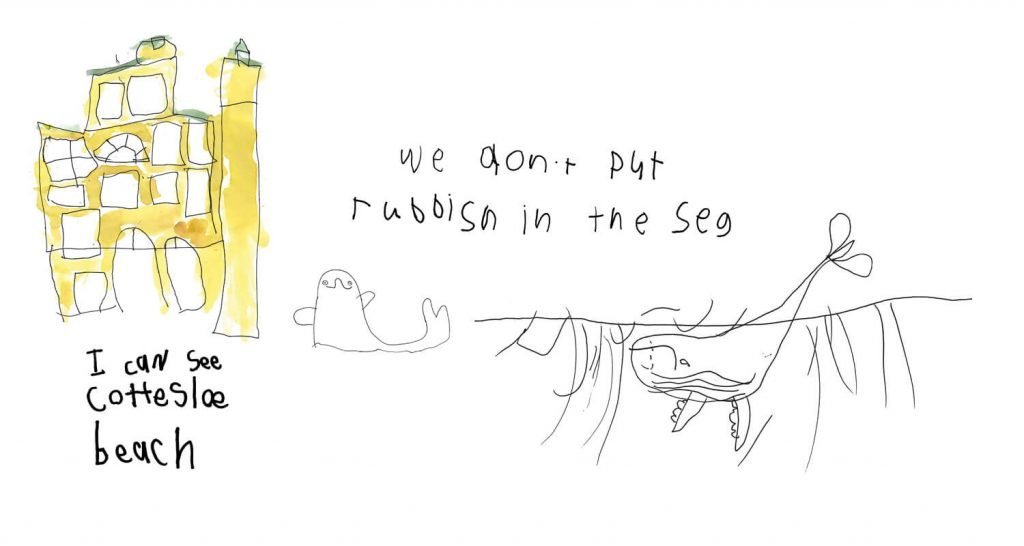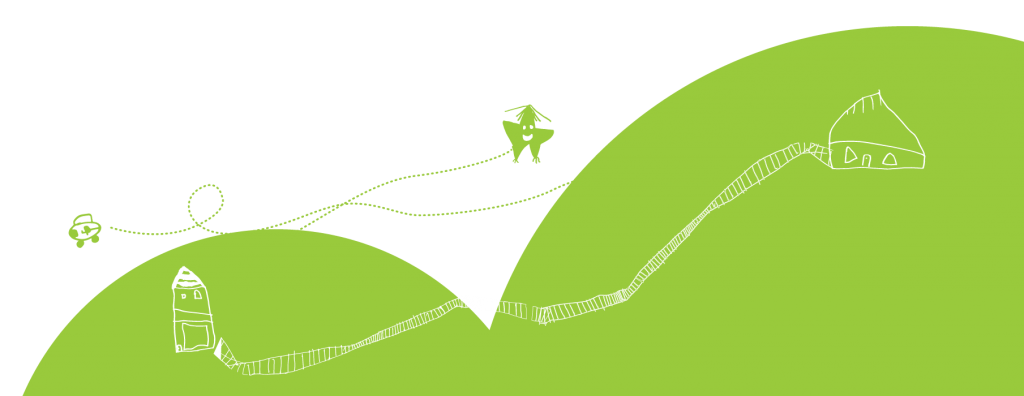Children are strong, capable and resilient researchers.
Although our practice is primarily influenced by the Reggio Emilia approach to early learning, we believe our children are best served by drawing perspective and insight from many different disciplines, philosophers and pedagogy, from Australia and overseas. We stay abreast of the research into early childhood, regularly assess and examine our processes and practice in the light of new ideas, and seek to integrate the best elements of each.
Our philosophy and practice is thus informed by that of the Municipal Schools of Reggio Emilia, Rudolf Steiner, Maria Montessori, and the International Baccalaureate, as well as our own observations and interactions.


We recognise that children are competent individuals, each of whom we seek to know and respect. We gain insight into both the characteristics and the interests of each child through collaborating with parents, listening to the child, and observing their actions and interactions.
Based on these discoveries we build environments and opportunities for them to safely explore and develop their thoughts and understandings and to express these in any of the hundred languages for children, which include drawing, sculpture, dramatic play, movement and music.
It is vital that children feel they have ownership over their own space and learning so they feel confident and comfortable. We facilitate this by planning routines, activities, and projects around children’s own sense of time and rhythm rather than the clock. We provide beautiful and well thought out environments, which the children become directly involved in creating and caring for.
Our Schools of Early Learning are important, decisive places where parents, educators, children, and the environment support all those involved to be themselves: original, individual, and whole.
In our philosophy, children are neither vessels to be filled nor people whose time must be occupied; they are strong, capable, and resilient researchers, exploring themselves and their environment.
Children have the ability, dexterity, and passion to devour knowledge, requiring only the freedom to explore and experiment. We are nurturers and caregivers, providing a safe environment for this exploration to take place, but we are also collaborators and co-researchers.
The Reggio Emilia Approach
The Reggio Emilia Approach is an educational philosophy constructed by Loris Malaguzzi, centered on the image of the child and of all human beings, as possessing strong potentials for development, and as a subject of rights, who learn and grow in their relationships with others.
This global educational project, started in the Municipal Infant-toddler Centers and Preschools of Reggio Emilia, Italy, has inspired other schools all over the world. It is considered best practice and is based on a number of distinctive characteristics:
- The participation of families
- The collegial work of all the personnel
- The importance of the educational environment
- The presence of the atelier and the figure of the atelierista
- The pedagogical coordinating team.
Our children are offered daily opportunities to encounter many types of materials, many expressive languages, many points of view, to work actively with their hands, minds, and emotions, in a context that values the expressiveness and creativity of each child in the group.
Malaguzzi, Reggio and the Hundred Languages
(Taken from Reggio Children Foundation)
Loris Malaguzzi began his career as a primary school teacher in 1946. In 1950 he established the Municipal Psycho-Pedagogical Medical Center in Reggio Emilia, where he worked for more than twenty years. In 1963 he began collaborating with the city administration for the opening of the first municipal preschools. This network of services, which in 1967 also incorporated the “people’s nursery schools” that had been established in the post-War period, was expanded in 1971 to include the first infant-toddler centers.
Malaguzzi directed these educational services for many years, working alongside other close colleagues. Consultant to the Italian Ministry of Education, director of the education journals Zerosei and Bambini, in 1980 he established the National Early Childhood Group in Reggio Emilia. Malaguzzi untiringly promoted an innovative philosophy of education that would give value to the wealth of potentials and resources of all children, as expressed in the concept of the “hundred languages of children”.
The Hundred Languages of Children
The child is made of one hundred.
The child has a hundred languages
a hundred hands
a hundred thoughts
a hundred ways of thinking
of playing, of speaking.
A hundred.
Always a hundred ways of listening, of marvelling, of loving
a hundred joys for singing and understanding
a hundred worlds to discover
a hundred worlds to invent
a hundred worlds to dream.
The child has a hundred languages
(and a hundred hundred hundred more)
but they steal ninety-nine.
The school and the culture separate the head from the body.
They tell the child:
to think without hands
to do without head
to listen and not to speak
to understand without joy
to love and to marvel only at Easter and at Christmas.
They tell the child:
to discover the world already there
and of the hundred they steal ninety-nine.
They tell the child:
that work and play
reality and fantasy
science and imagination
sky and earth
reason and dream
are things that do not belong together.
And thus they tell the child
that the hundred is not there.
The child says:
“No way! The hundred is there.”
– Loris Malaguzzi
The philosophy and practice at our Schools of Early Learning recognise the importance of the Rights of the Child. It is the cornerstone that allows us to see the needs of the whole child and take into consideration all areas of their development.
- Children need parents, teachers and the community to be constantly researching and looking at practice.
- Children need a safe secure environment that challenges and stimulates. This environment allows time for discovery, reflection, experimentation and for revisitation.
Children need a space to discover, to learn and to fail. This space needs to be theirs, it’s a place for mum and dad to visit, to learn about, to be interested in but not to control.
- Children need to learn how to form peer relationships, resolve conflicts, to make mistakes, to forgive and be forgiven. Children need to learn about feelings and about right and wrong (This needs to be lived not told).
- Children need to understand the concept of mutual respect. Respect for others and respect for the environment.
References
i Behaviourism: Edward Tolman (1967) Purposive Behaviour in Animals and Men New York : Appleton-Century-Crofts
ii Field or change theories: Kurt Lewin (1954) Behaviour and Development as a Function of the Total Situation in L. Carmichael (ed) Manual of Child Psychology New York: Wiley
iii Social learning: Albert Bandura (1977) Social Learning Theory Englewood Cliffs, N.J. : Prentice Hall
iv Developmental theories: Erik Erikson (1963) Childhood and Society New York : Norton
v Developmental theories: Havighurst, R.J. (1972) Developmental Tasks and Education New York: D. McKay
vi Ecological theories: Uri Bronfenbrenner (1979) The Ecology of Human Development Cambridge, MA: Harvard University Press
vii Systems theories: Leroy Wells (1990) The Group as a Whole: A System Socioanalytic Perspective on Interpersonal and Group Relations in J. Gillette and M. McCollon Groups in Context Reading, MA: Addison Wesley
viii Gestalt theories: Max Wertheimer (1945)
ix Constructivism: Maria Montessori The Absorbent Mind; Levine, J.M and Resnick, L.B. (1993) ‘Social foundations of cognition’ in Annual Review of Psychology, 44, 585-612
x Social constructivism: Lev Vygotsky (1978) Mind in Society Cambridge, MA: Harvard University Press; Rogoff, B. (1990) Apprenticeship in Thinking: Cognitive Development in Social Context New York: Oxford University Press
xi Phenomenology: Edmund Husserl
xii Multiple intelligences: Howard Gardner (1993) Frames of Mind: The Theory of Multiple Intelligences New York: Basic Books
xiii Inquiry learning: Jerome Bruner (1990) Acts of Meaning Cambridge, Ma: Harvard University Press
xiv Discourse: Gee, J. (1990) Social Linguistics and Literacies: Ideology in Discourses New York: Falmer Press
xv Discovery learning: David Hawkins (1966) “Learning the Unteachable”, Shulman, Lee S. and Keislar, Evan R., editors. Learning by Discovery: A Critical Appraisal, Chicago: Rand McNally
xvi Cognitive theories: Jean Piaget (1971) Biology and Knowledge Chicago: The University of Chicago Press
xvii Functionalism: John Dewey (1916) Democracy and Education: An Introduction to the Philosophy of Education New York: Macmillan
xviii Mediated learning: Reuven Feuerstein (1980) Instrumental Enrichment: An Intervention Program for Cognitive Modifiability Baltimore, MD: University Park Press
xix Intervention theory: Chris Argyris (197) Intervention Theory and Method Reading, MA: Addison Wesley
xx Critical reflection: Brookfield, S. (1995) Becoming A Critically Reflective Teacher San Francisco: Jossey Bass
xxi Social representation theory: Serge Moscovici: Man is part of nature: nature is man plus matter
xxii Theories of power: Michel Foucault “Truth, Power, Self”, in Luther H. Martin et al (eds), Technologies of the Self, The University Massachusetts Press, 1988



